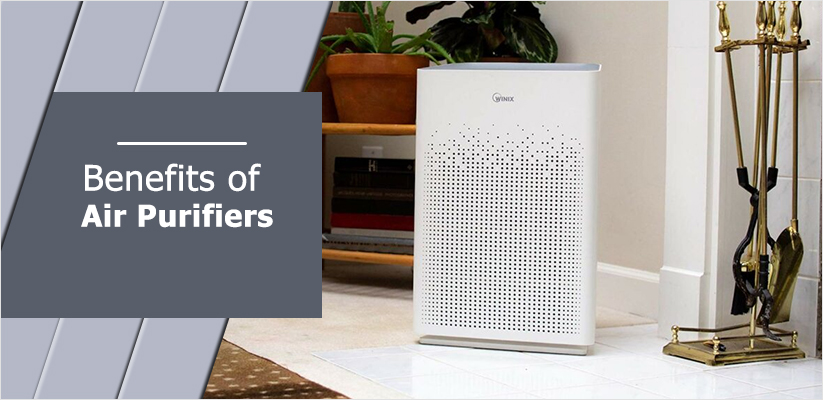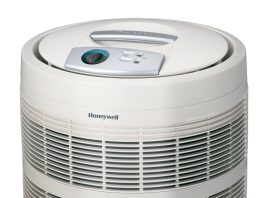Benefits of an Air Purifier
An air purifier is a device that helps improve indoor air quality by removing pollutants and contaminants from the air. It is becoming increasingly popular as people become more aware of the importance of clean and healthy air. In this article, we will explore the numerous benefits of using an air purifier in your home or office.
Improved Indoor Air Quality
One of the primary benefits of an air purifier is the significant improvement it brings to indoor air quality. The air inside our homes and offices can be filled with various pollutants such as dust, pet dander, pollen, mold spores, and volatile organic compounds (VOCs) emitted by household products. These pollutants can cause allergies, respiratory problems, and other health issues.
An air purifier works by trapping and filtering these pollutants, ensuring that the air you breathe is clean and free from harmful particles. It helps reduce the risk of allergies, asthma attacks, and other respiratory conditions, making it especially beneficial for individuals with pre-existing respiratory issues.
Removal of Odors
Another significant advantage of using an air purifier is its ability to eliminate unpleasant odors from your living or working space. Whether it’s cooking smells, pet odors, or cigarette smoke, an air purifier can effectively remove these odors, leaving the air fresh and clean.
By using activated carbon filters, air purifiers can absorb and neutralize odorous particles, providing a more pleasant and inviting environment. This is particularly beneficial if you have pets, live in a polluted area, or simply want to maintain a clean and odor-free space.
Allergen Reduction
If you suffer from allergies, an air purifier can be a game-changer. It helps reduce the presence of allergens in the air, such as dust mites, pollen, and pet dander, which are common triggers for allergic reactions.
An air purifier with a high-efficiency particulate air (HEPA) filter is especially effective in capturing and trapping these allergens, preventing them from circulating in the air. By removing allergens, an air purifier can provide relief from allergy symptoms and improve overall well-being.
Asthma Relief
Asthma is a chronic respiratory condition that can be aggravated by poor air quality. Air purifiers can play a crucial role in managing asthma symptoms and providing relief to individuals with this condition.
By removing asthma triggers such as dust, pollen, mold spores, and pet dander, air purifiers create a cleaner and healthier environment. This can help reduce the frequency and severity of asthma attacks, allowing individuals to breathe easier and enjoy a better quality of life.
Enhanced Sleep Quality
Many air purifiers are equipped with features such as noise reduction and night mode, making them ideal for use in bedrooms. By improving air quality and reducing airborne allergens, an air purifier can create a more conducive sleep environment.
Additionally, some air purifiers emit soothing sounds or have built-in aromatherapy functions that promote relaxation and better sleep. This can be particularly beneficial for individuals who suffer from allergies, asthma, or sleep-related issues.

An air purifier offers numerous benefits, including improved indoor air quality, odor removal, allergen reduction, asthma relief, and enhanced sleep quality. By investing in a high-quality air purifier, you can create a healthier and more comfortable living or working environment for yourself and your loved ones.
Frequently Asked Questions
1. How does an air purifier benefit my health?
An air purifier helps remove harmful pollutants, allergens, and irritants from the air, improving indoor air quality and reducing the risk of respiratory issues and allergies.
2. Can an air purifier eliminate bad odors?
Yes, many air purifiers are equipped with activated carbon filters that can effectively remove unpleasant odors, such as smoke, pet smells, and cooking odors.
3. Will an air purifier reduce the spread of airborne viruses?
While an air purifier cannot eliminate viruses, it can help by capturing and reducing airborne particles, including viruses, thus minimizing the risk of transmission.
4. Can an air purifier help with asthma symptoms?
Yes, air purifiers can help alleviate asthma symptoms by removing triggers like dust mites, pollen, pet dander, and mold spores from the air, creating a cleaner and healthier environment.
5. Are air purifiers effective against indoor air pollution?
Absolutely! Air purifiers are designed to combat indoor air pollution by efficiently trapping and filtering various pollutants, such as dust, pollen, VOCs, and pet dander.
6. Do air purifiers require regular maintenance?
Yes, air purifiers typically require regular maintenance, including filter replacements and cleaning. Refer to the manufacturer’s instructions for specific maintenance requirements.
7. Can an air purifier help with allergies?
Yes, air purifiers can significantly reduce allergy symptoms by capturing and removing allergens like pollen, dust mites, mold spores, and pet dander from the air you breathe.
8. Are there any energy-efficient air purifiers available?
Yes, many air purifiers are designed to be energy-efficient, consuming minimal power while effectively purifying the air in your home or office.
9. Can an air purifier improve sleep quality?
Absolutely! By removing airborne irritants and allergens, an air purifier can create a cleaner and healthier sleep environment, leading to improved sleep quality and reduced nighttime allergies.
10. Are air purifiers suitable for all room sizes?
Air purifiers come in various sizes and capacities. It’s important to choose an air purifier that is suitable for the size of the room you intend to use it in. Refer to the manufacturer’s recommendations for guidance.



